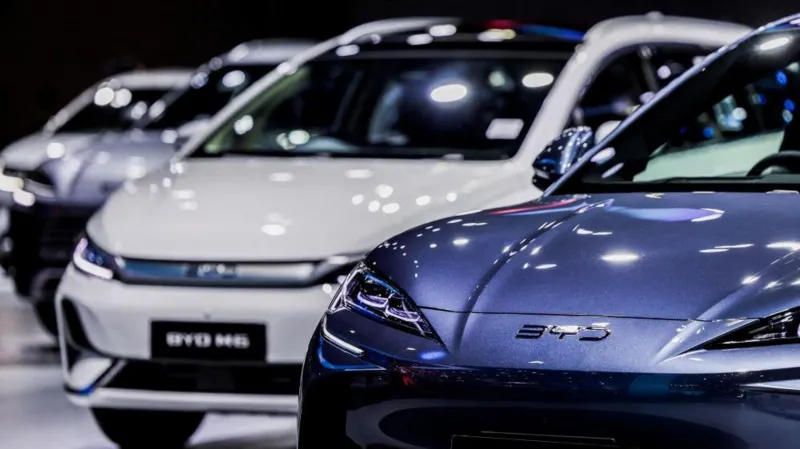BYD, China’s leading electric vehicle (EV) manufacturer, reported a sharp decline in quarterly profits, highlighting the pressures mounting in the country’s increasingly competitive EV market. Between April and June, the Shenzhen-based company posted a net profit of 6.4 billion yuan ($900 million; £660 million), a 30% drop compared with the same period last year.
The carmaker attributed the fall to “increased price competition” among domestic EV brands, reflecting the fierce rivalry that has gripped the industry. BYD faces competition from local players such as Nio and XPeng, as well as US giant Tesla, all of which have cut prices aggressively to attract buyers. The company’s stock reacted sharply to the results, dropping as much as 8% in Hong Kong trading on Monday.
In its filing, BYD described the competitive environment in China as reaching a “fever pitch,” citing “industry malpractices” including excessive marketing and promotional incentives. Many EV makers have subsidised car dealers and offered zero-interest loans to stimulate demand, contributing to a highly cutthroat market.
The price war has not gone unnoticed by regulators. Beijing has issued warnings urging automakers to curb aggressive discounts, seeking to stabilise the market and safeguard the broader economy. Average car prices in China have fallen roughly 19% over the past two years, now averaging around 165,000 yuan ($23,100; £17,100), according to industry estimates.
Despite strong sales overseas, BYD’s earnings failed to meet analysts’ expectations for a modest increase. The company had set an ambitious target of selling 5.5 million vehicles globally in 2024 but had only delivered 2.49 million by the end of July.
Laura Wu, an industrial policy expert in Singapore, said BYD’s “surprising” performance demonstrates that even the sector leader may struggle to benefit from a price war. She warned that while discounts can help consumers in the short term, they risk creating an oversupply of Chinese EVs in the long run.
BYD has grown into the world’s largest EV maker, surpassing Tesla in annual revenue in 2024, driven by the popularity of its hybrid vehicles across China, Asia, and Europe. Yet the latest results show that even dominant players are not immune to the pressures of a market in turmoil.

